
BEE Lisp Compiler
You can mix a code in Lisp with a code created in other languages such as С ++ (Delphi, Java, Python, C# and others) and call Lisp-functions from С++ programs. BEE Lisp is shipped with examples of applications which show interaction of С++ code with Lisp and vice versa. You can create full-featured Win32 applications, using only BEE Lisp, however it is possible to write GUIs in Rapid Application Development environments specifically designed for developing GUIs, such as Delphi, and then use DLLs with BEE Lisp code from Delphi application. Certainly, you can use Lisp DLLs from a code on Lisp.
BEE Lisp is the implementation of Lisp language that has following features:
- Stand-alone executable files compilation
- DLLs compilation
- Windows API support
- Extensibility of the compiler through open COM interfaces
BEE Lisp also provides other advantages:
- Faster development of your applications due to very high level and abstract nature of Lisp
- Cheaper development
- Programs are easier to make error-free
- BEE Lisp is a great choice for text processing algorithms implementation.
(for example, the translator for natural languages) - BEE Lisp is ideally suited for studying Lisp language






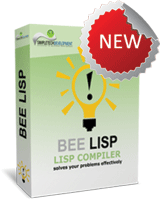

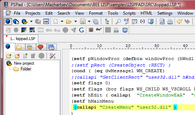
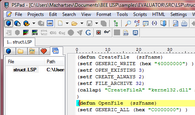
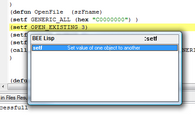
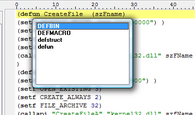
 SimpleTech Development © 2003 - 2011
SimpleTech Development © 2003 - 2011
